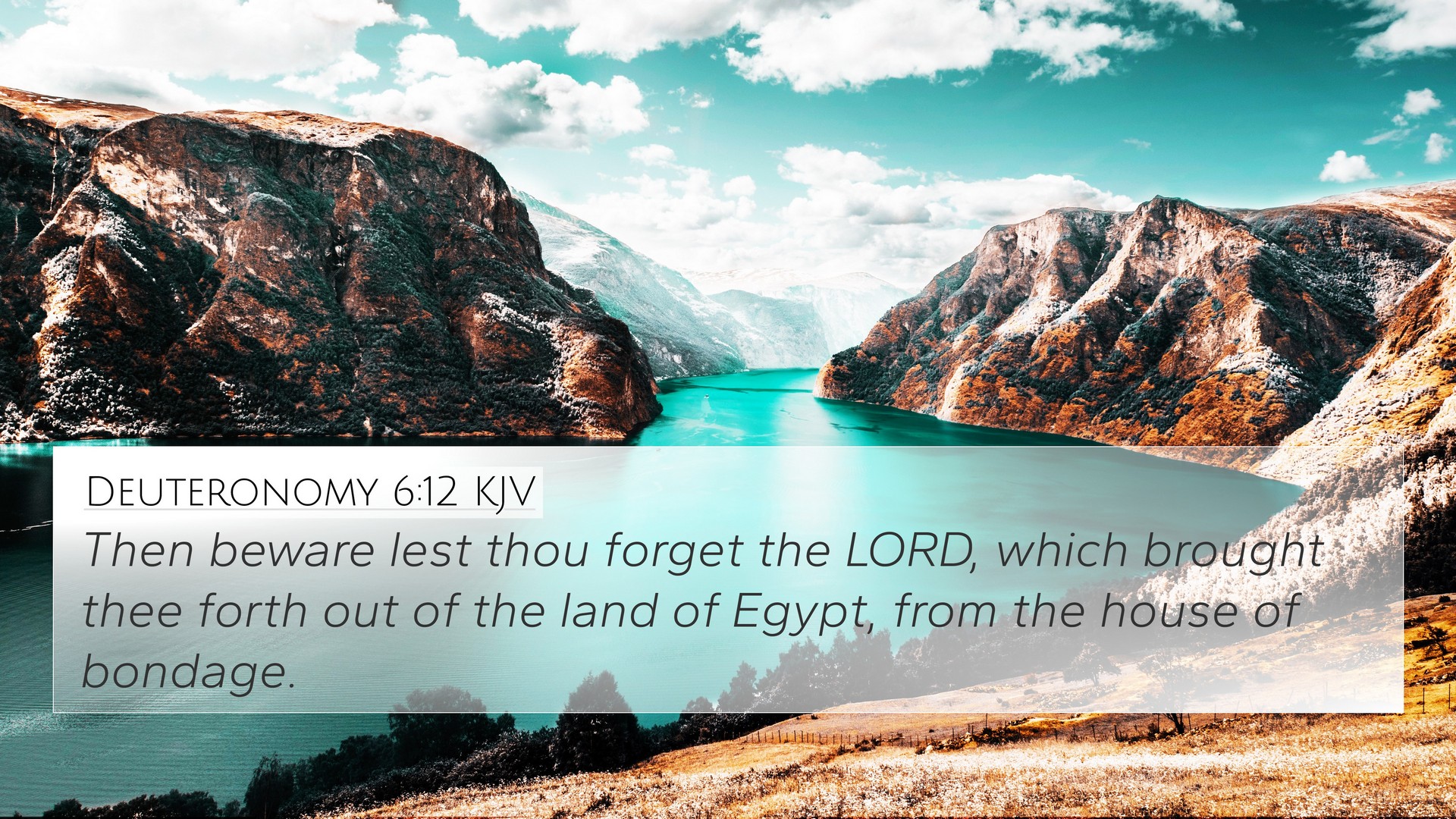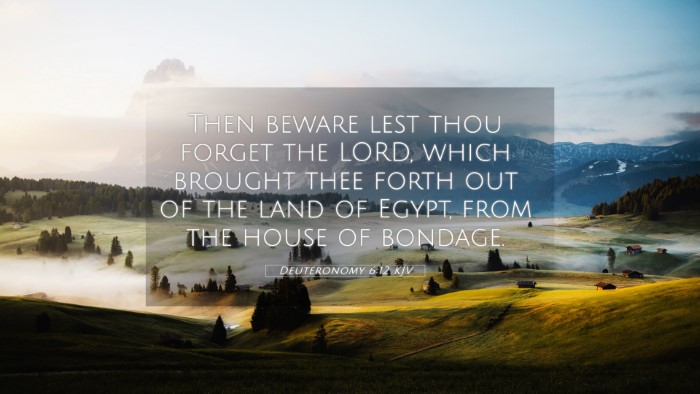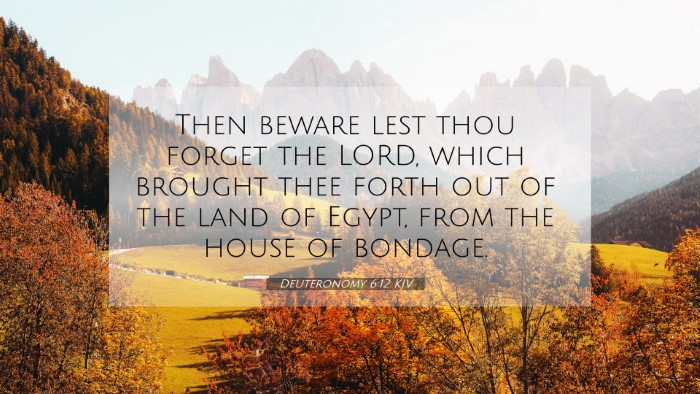Understanding Deuteronomy 6:12
Deuteronomy 6:12 states: "Then beware lest thou forget the Lord, which brought thee forth out of the land of Egypt, from the house of bondage." This verse serves as a powerful reminder of the importance of remembrance and gratitude towards God for His deliverance.
Meaning and Insights
This Scripture emphasizes the necessity of remembering God's past actions and His covenant with His people. Here are some key interpretations from public domain commentaries:
- Matthew Henry notes that forgetfulness of God leads to spiritual decline. He stresses the importance of recognizing God's mighty acts in history, particularly the deliverance from Egypt. Forgetting these acts allows complacency to creep into our lives.
- Albert Barnes elucidates that this warning serves both as a historical lesson and a personal exhortation. He highlights the danger of prosperity leading to ingratitude and the consequent turning away from God.
- Adam Clarke adds that the phrase "house of bondage" signifies a state of oppression. The deliverance from Egypt symbolizes spiritual liberation, urging believers to maintain a relationship with God who redeems and liberates.
Thematic Connections
This verse connects deeply with several themes prevalent throughout the Bible, including:
- Memory and Remembrance: The act of remembering God's deeds is critical in maintaining faith.
- Gratitude: Recognizing God’s deliverance encourages gratitude and reliance on His guidance.
- Identity: As God’s people, knowing one’s history with Him shapes spiritual identity.
- Warnings Against Complacency: The caution against forgetting serves as a reminder to remain vigilant in faith.
Cross-References
Deuteronomy 6:12 is enriched by several Bible verse cross-references that highlight its themes:
- Exodus 20:2-3: "I am the Lord your God, who brought you out of the land of Egypt, out of the house of bondage."
- Psalms 106:21: "They forgot God their Savior, who had done great things in Egypt."
- Jeremiah 2:6: "Neither said they, Where is the Lord that brought us up out of the land of Egypt?"
- Matthew 16:9-10: In the New Testament, Jesus asks His disciples about the miraculous feedings, linking God's provision in the past with His works in the present.
- Hebrews 3:12: "Take heed, brethren, lest there be in any of you an evil heart of unbelief, in departing from the living God."
- 1 Corinthians 10:1-2: Paul speaks of Israel’s journey through the sea, linking to the concept of baptism and deliverance.
- Romans 12:1: The call to present our bodies as living sacrifices is a response to God's mercies, akin to the recognition of His past works.
Connecting Other Scriptures
The connections between Bible verses can be further explored through comparative Bible verse analysis. Here are some tools for Bible cross-referencing:
- Bible Concordance: A valuable resource for finding specific themes or words throughout the scriptures.
- Bible Reference Resources: Utilize study Bibles that have footnotes and annotations linking related verses.
- Cross-Reference Bible Study: Engaging in a study that focuses on interconnected themes can provide deeper insights.
Conclusion
Deuteronomy 6:12 serves as a significant warning and instruction for believers, emphasizing the importance of remembering God's deliverance and maintaining a relationship with Him. By exploring connections between Bible verses and leveraging tools for cross-referencing, we can deepen our understanding of God's word and its implications in our lives.
As you explore the Holy Scriptures, consider the ways in which similar verses intertwine, creating a rich tapestry of theological themes and divine truths that guide our faith journey.


